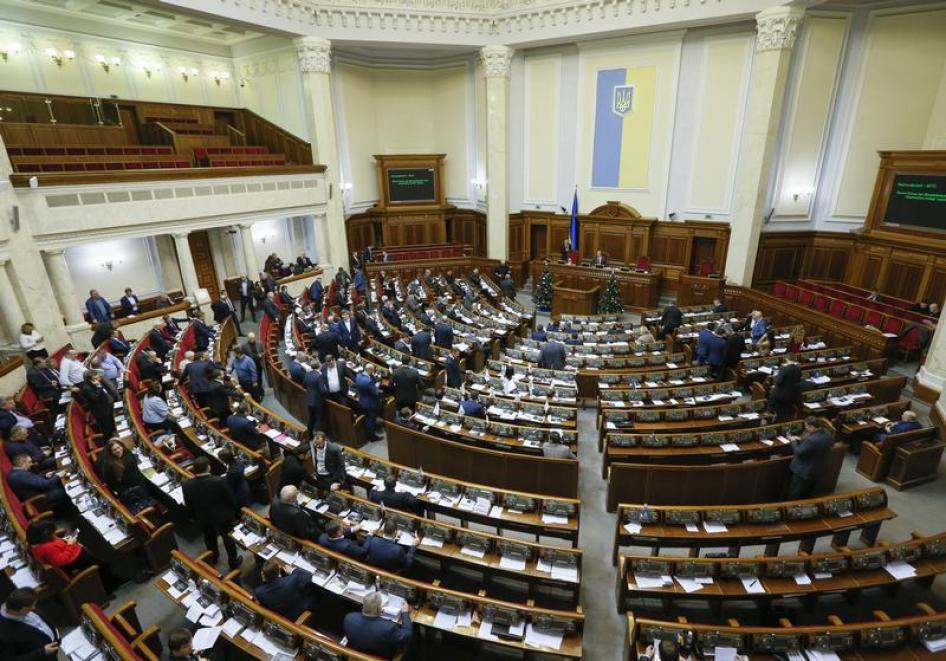(Berlin) – Ukraine’s parliament should not squander the opportunity presented by the current commitment to reform of Ukraine’s security service (SSU), and instead should address shortcomings in the reform proposals, 23 civil society groups including Human Rights Watch said today in a letter to President Volodymyr Zelensky and co-authors of the draft legislation. The reform is essential, they said, to help the security service transform into an effective agency that respects and upholds international human rights norms.
Draft law 3196-D “On the Security Service of Ukraine,” adopted by Ukraine’s parliament, the Vekrhovna Rada, in its first reading in January 2021, contains provisions that could be damaging for human rights, the groups said, describing their concerns. The draft is being prepared for adoption at its second and final reading, anticipated for early June.
“The ongoing initiative to reform the security agency, which Ukraine’s partners and allies have long urged the government to undertake, is both needed and long overdue,” said Hugh Williamson, Europe and Central Asia director at Human Rights Watch, “But for the reform to succeed, and to strengthen Ukraine’s rule of law, several key problematic aspects of the proposed law have first to be addressed.”
The reform process was initiated to streamline the agency’s work as an intelligence agency, including removing law-enforcement functions from its mandate and transferring them to other bodies. The groups outlined ways in which the proposed draft does not achieve that goal but instead provides the agency with overly broad powers in both intelligence and law-enforcement spheres.
Human Rights Watch and other international human rights groups have extensively documented the agency’s arbitrary, prolonged, and secret detention, torture, and ill-treatment. However, the proposed legislation does not provide sufficient protections to prevent abuses in detention or guarantee due process for those in the agency’s custody. The proposed provisions to phase out the SSU’s pretrial investigative functions gradually by 2024 or to allow the agency to operate temporary detention facilities until January 2023, are not supported by a clear roadmap that would ensure that these deadlines are met.
Provisions of the draft law governing the use of coercive measures allow the SSU much greater scope to use these measures than other law enforcement agencies in Ukraine. This could lead to failure to ensure that force is only used in a strictly proportional manner, as outlined in international human rights norms.
The groups also noted with concern that the proposed legislation provides the agency with extraordinary access to online financial and personal communications and points out a lack of provision for strong, effective public oversight of the security services.
“Ukraine’s leadership and parliament should not squander this long-awaited opportunity to create a strong and accountable security agency by rushing into adopting legislation that raises legitimate concerns about human rights and the rule of law,” Williamson said. “Instead, there should be a transparent process to address these concerns, accompanied by a meaningful debate with civil society, human rights activists, and experts.”








